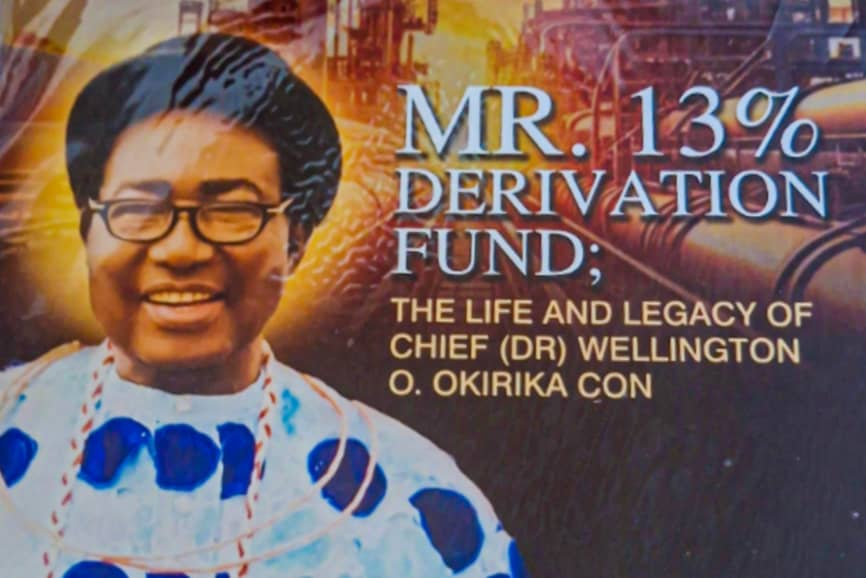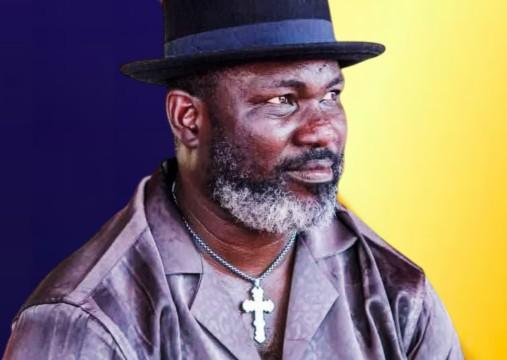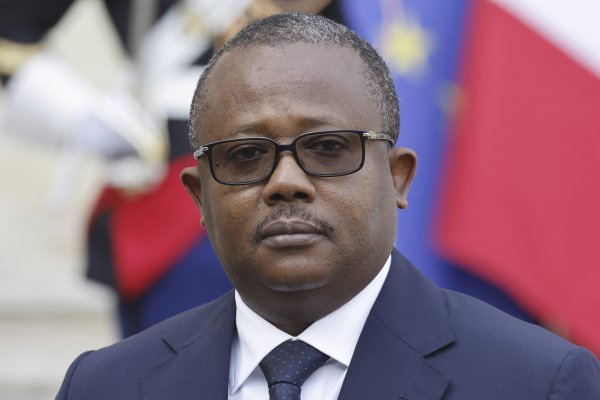13% DERIVATION FUND: More of Theory Than Practical By Abai Francis

Did you know that Chief (Dr.) Wellington Okirika's advocacy for an increase in oil derivation to host communities, which led to 13 per cent from 3 per cent, in the 1994–95 Constitutional Conference marked the largest single increase in resource allocation in Nigeria's history—and cemented Okirika's legacy as Mr. 13%?
The current state of the 13 per cent Derivation Fund to host communities producing oil and gas could be likened to that of the local adage, "Monkey dey work, Baboon dey chop" because those who should benefit from the oil-related fund are largely deprived while those in whose power lie the utilisation of the fund continue to subject it to their whims and caprices.
Enshrined in Section 162(2) of the 1999 Constitution (as amended), the 13 per cent Derivation Fund is No. 39 on the Exclusive Legislative List. By this implication, its usuage is exclusively for oil and gas producing communities primarily as compensation for the loss of fishing rights and productive farmlands as a result of oil exploration and production activities. But in practical terms, is it so?
Partly culled from chapter six of the recently launched book titled "Mr. 13% Derivation Fund: The Life and Legacies of Chief (Dr.) Wellington O. Okirika CON" I bring to you some highlights of the journey to the birth of the 13 per cent Derivation Fund. Excerpts:
"Having secured political autonomy and traditional recognition, Chief Wellington Okirika turned his full attention to the foundational question: Who truly benefits from when oil is extracted from the Niger Delta?...
"By the early 1990s, incremental gains from 1.5% to 3% were insufficient. Oil revenues had skyrocketed. Yet, those communities remained mild in poverty, environmental degradation, and crumbling infrastructure. Chief Okirika argued that derivations must be more than a budget line—it must be a constitutional guarantee and a first-charge obligation.
"We cannot be tenants on our ancestral land," he would declare at town hall meetings. "The blood, sweat, and tears of our people deserve more than crumbs," he added.
"Harnessing the dual engines of TROMPCON (traditional rulers) and OMPCON (technical advocates), he prepared for the national arena—armed with memoranda, legal briefs, and the moral authority of Nigeria's oil-bearing monarchs.
"The 1994-95 Constitutional Conference was a crucible. Southern delegates faced hostility from federal technocrats and northern governors wary of ceding revenue control. Chief Okirika—by then a recognized voice of the Niger Delta—led the delegation from oil-producing states, demanding: 13% derivation as a non-negotiable, first-line charge on the federation account; federal oversights to prevent misappropriation by provincial authorities, community commissions to manage funds at the grassroots.
"Days of impassioned debate, inter-ethnic negotiations, and behind-the-scenes lobbying culminated in a historic compromise: 13% derivation for oil-producing states enshrined in the draft constitution. It marked the largest single increase in resource allocation in Nigeria's history—and cemented Okirika's legacy as Mr. 13%."
Today, host communities, particularly in the creeks of the Niger Delta region, continue to wallow in poverty and the dearth of infrastructures because of the politicisation of the 13 per cent Derivation Fund by political office holders. The pending case of a missing N1.3 trillion naira fund being proceeds of the 13 per cent Derivation Fund being alleged to have been misappropriated by a former sitting governor of Delta State demonstrates the abuse of power by politicians who are entrusted to administer such funds on behalf of the people. Yet, the ruling class sees nothing wrong with their action.
Today, the application of the 13 per cent Derivation Fund is more of theoretical than practical, more of paper work than tangible execution. In the end, the law is being abused by those who swore on oath to keep it.
So, while the 13 per cent Derivation Fund as enshrined in the 1999 Constitution is being paid to the oil-producing states, the issue of it being hijacked by the political class and its poor utilisation continues to attract public debate.
View photos of the presentation of the book: “Mr. 13% Derivation Fund: The Life and Legacies of Chief (Dr.) Wellington O. Okirika CON" by Chief Okirika, the Bolowei of the ancient Gbaramatu Kingdom, to the Ovie of Uvwie Kingdom, HRM Dr. Emmanuel E. Sideso, Abe 1, JP, OON, among other personalities in attendance: https://www.facebook.com/share/p/1BWqsFBVM4/
#penglobalexposition #HostCommunities #Delta



